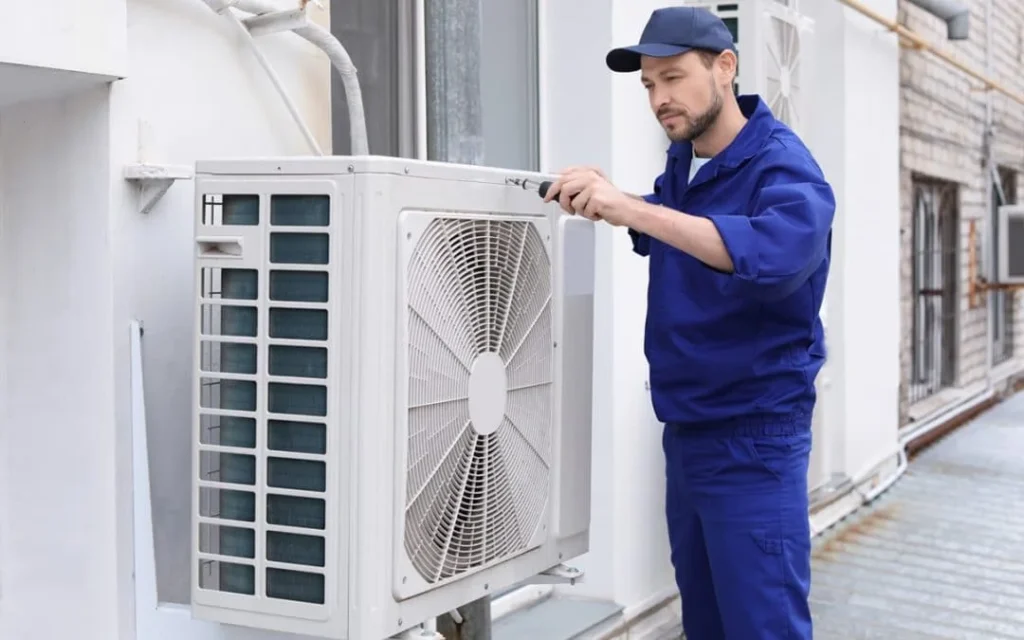Installing a new air conditioning (AC) system is a significant investment for any homeowner in Hamilton. To ensure you get the most out of your investment, it’s important to consider several key factors before, during, and after the installation process. This blog will outline the key considerations for AC installation in Hamilton, helping you make informed decisions and achieve optimal results.
Assessing Your Cooling Needs
Before selecting an AC system, it’s crucial to assess your home’s cooling needs. Consider factors such as the size of your home, the number of rooms, and the local climate. An accurate assessment helps determine the appropriate size and type of AC unit for your home, ensuring efficient cooling and energy savings.
Choosing the Right Type of AC System
There are several types of AC systems available, each with its own advantages and disadvantages. The most common types include:
- Central Air Conditioning: This system distributes cool air through a network of ducts, making it ideal for cooling entire homes. It offers consistent temperatures and can improve indoor air quality with proper filtration.
- Ductless Mini-Split Systems: These systems are suitable for homes without existing ductwork. They provide flexibility in installation and can cool individual rooms, offering energy efficiency and zoned cooling.
- Window Units: These are a cost-effective solution for cooling single rooms. They are easy to install and remove but may not be as energy-efficient as other systems.
- Portable AC Units: These units can be moved from room to room and are a convenient option for temporary cooling needs. However, they may not provide the same level of cooling efficiency as permanent systems.
Energy Efficiency
Energy efficiency is a crucial consideration when selecting an AC system. Look for units with high Seasonal Energy Efficiency Ratio (SEER) ratings, which indicate better energy performance. Energy-efficient systems not only reduce your electricity bills but also have a lower environmental impact.
Professional Installation
Hiring a professional installer is essential for ensuring a successful AC installation. Professionals have the expertise to handle complex installations, optimize system performance, and comply with local building codes. They can also provide valuable advice on system maintenance and operation.
Preparing Your Home for Installation
Proper preparation can streamline the installation process and prevent potential issues:
- Clear the Installation Area: Remove any obstacles or furniture from the area where the AC unit will be installed.
- Check Electrical Requirements: Ensure that your home’s electrical system can support the new AC unit. You may need to upgrade your electrical panel or install a dedicated circuit.
- Seal and Insulate Ducts: If you’re installing a central AC system, inspect your ductwork for leaks and ensure it’s properly insulated to maximize efficiency.
Post-Installation Maintenance
Regular maintenance is essential for keeping your new AC system running efficiently and extending its lifespan:
- Change Filters Regularly: Replace or clean the air filters every one to three months to maintain optimal airflow and air quality.
- Schedule Annual Tune-Ups: Have a professional technician inspect and service your AC system annually to identify and address any potential issues.
- Keep the Unit Clean: Regularly clean the outdoor unit and remove any debris or vegetation that could obstruct airflow.
- Check the Thermostat: Ensure your thermostat is functioning correctly and consider upgrading to a programmable or smart thermostat for better control and energy savings.
Budget and Financing
Installing a new AC system is a significant investment, so it’s important to budget accordingly. Consider the initial cost of the unit, installation fees, and potential maintenance expenses. Many HVAC companies offer financing options, allowing you to spread the cost over time and make the investment more manageable.
Warranty and Support
Ensure that your new AC system comes with a comprehensive warranty. A good warranty protects you against manufacturing defects and potential repair costs. Additionally, choose an installer who offers post-installation support, including regular maintenance and prompt repairs if needed.
Environmental Impact
Consider the environmental impact of your AC system. Energy-efficient units reduce your carbon footprint and contribute to a more sustainable future. Additionally, proper installation and maintenance can prevent refrigerant leaks, which can be harmful to the environment.
Conclusion
AC installation in Hamilton involves several key considerations, from assessing your cooling needs and choosing the right system to ensuring professional installation and regular maintenance. By taking these factors into account, you can make informed decisions that maximize the efficiency and longevity of your AC system. Investing in a new AC unit not only enhances your indoor comfort but also provides energy savings and contributes to a more sustainable environment. With careful planning and professional support, you can enjoy a cool and comfortable home during Hamilton’s hot summer months.



